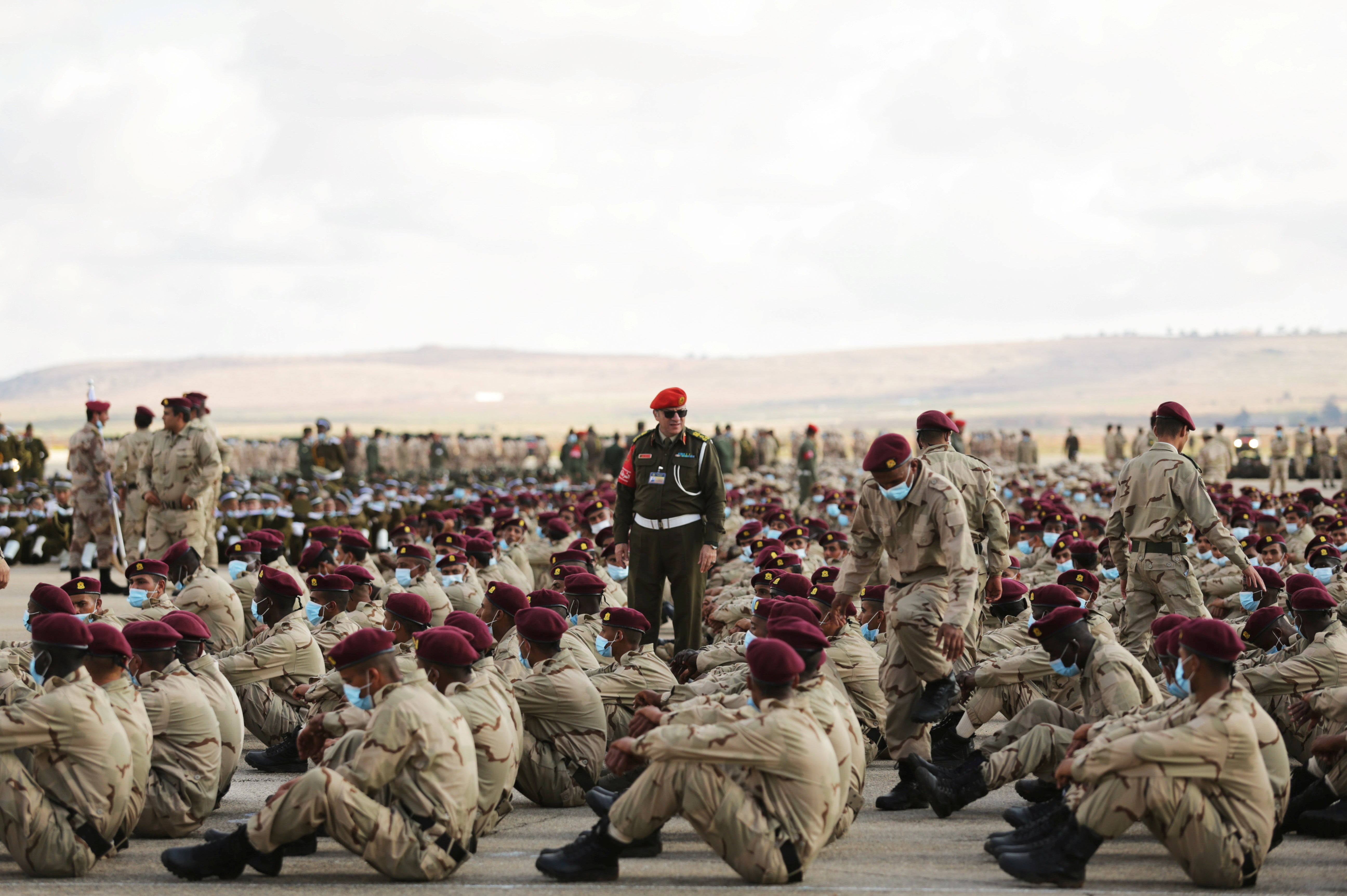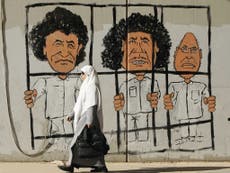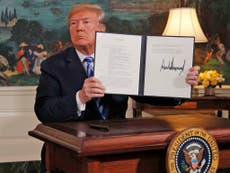No justice, no peace: until Libya punishes the warlords, democracy is just talk
Ten years since the beginning of the popular uprising, two contrasting versions of the country have come into focus this month


As Libya this month marked 10 years since the beginning of the popular uprising that ultimately toppled the its longtime dictator, Muammar Gaddafi, two contrasting versions of the country came into focus.
One was on display in what appeared to be an aeroplane hangar outside of Geneva, where 75 Libyan civil society leaders gathered as part of the United Nations-backed Libyan Political Dialogue Forum. It was the culmination of a months-long effort to select an interim authority to lead the country towards December elections, a democratically agreed upon government and a new constitution.
The surprise winners on 6 February were the transitional prime minister, Abdulhamid al-Dbeibah, and President Mohammed Menfi, who this coming week will seek the approval of Libya’s quasi-parliament for their cabinet.
The other version of Libya is the one that many in the world have become more familiar with over the past decade. It is the Libya of the rag-tag militiaman wielding an assault rifle. It is the Libya of the death squad, of explosions and of killings. And it is described in a succinct note by Amnesty International, released on 17 February, the anniversary of the Libyan revolution.
The alarming missive refers to armed gunmen, loyal to political leaders, running roughshod over the rule of law, with little accountability for war crimes, roadside executions, torture, forced displacement and kidnappings.
The UN has been struggling to reconcile these two versions of Libya, to strengthen the nascent civil institutions while boxing in the armed groups. They have little choice, therefore, but to channel their differences and aspirations into the political process.
In an interview last week, the former acting UN envoy to Libya, Stephanie Williams, described the various failsafes put into place to make sure that neither Libyan warlord Khalifa Haftar, who dominates the country’s east, nor the various political-military conglomerates that dominate the country’s west, can act as spoilers as the country attempts to move towards normality.
“If the parliament can’t get its act together to approve the new government, it reverts back to the dialogue,” she tells The Independent. “Everything goes back to the dialogue, which plays a critical role as the guardian of the process.”
The proceedings were closely watched by ordinary Libyans. One news website broadcasting the proceedings reported 1.7 million views, perhaps a third of Libya’s population, and satellite news channels all carried the live Q&A sessions to which each candidate was subjected. “They were seeing their political class being questioned, answering unfathomable questions,” says Ms Williams.
In one tense moment, Aguila Saleh, head of Libya’s eastern parliament and a candidate for president, squirmed as he was asked how he would rebuild ties with Tripoli given his implicit support for Haftar’s 2019 assault on the Libyan capital.
All of Libya’s major players and their international backers, including Egypt, Turkey, the United Arab Emirates, and Russia, have publicly endorsed the political process.
Ten years of armed conflict over control of Libya’s cities and its considerable natural resources have yielded a stalemate, and little but frustration for foreign powers. The battles were propelled by foreign support, which in turn prompted more foreign interference. “It was because of the degree of foreign intervention that you have Libya basically fully or partially occupied,” says Williams. “It has become too much for the Libyans to swallow.”
But as Libya’s political process moves along, there is another danger. The civilian face of Libya could continue to emerge and grow stronger as the Libya of militias and gunmen continues to bide its time.
As the Amnesty report notes, many of the militia leaders have been legitimised as political players even though they have never been held accountable for their alleged crimes, which include assassinations of political dissidents such as Hanan al-Barassi, gunned down in the eastern city of Benghazi last year. In fact, there are little or no safeguards that those accused of war crimes will not achieve the highest positions of privilege, power and status in any future government.
“Unless those responsible for violations are brought to justice, rather than rewarded with positions of power, the violence, chaos, systematic human rights abuses and endless suffering of civilians that have characterised post-Gaddafi Libya will continue unabated,” said Diana Eltahawy, of Amnesty International, in the note.
There is a chance that Libya’s powerful alleged criminals, having escaped justice and acquired a measure of legitimacy, could decide to put their old ways behind them, trade their mismatched fatigues for cheap suits and wholeheartedly embrace the political process. That is the calculation of the admirable UN peacemakers.
But such expediency not only denies justice to the victims of Libya’s abuses, it has rarely worked in the past. Throughout recent history, today’s murderous warlord is tomorrow’s murderous dictator.
A 2020 study of 50 post-civil war transitions by a group of British and German-based scholars found that holding war criminals and abusers to account can “trigger cost-increasing mechanisms”, which can prevent a nation from sliding back into conflict.
Without some kind of transitional justice, the Geneva version and the death squad version of Libya could also simply co-exist and even flower for years, even decades, the former serving as a benign smiling mask for the latter’s sneering grimace.





Join our commenting forum
Join thought-provoking conversations, follow other Independent readers and see their replies